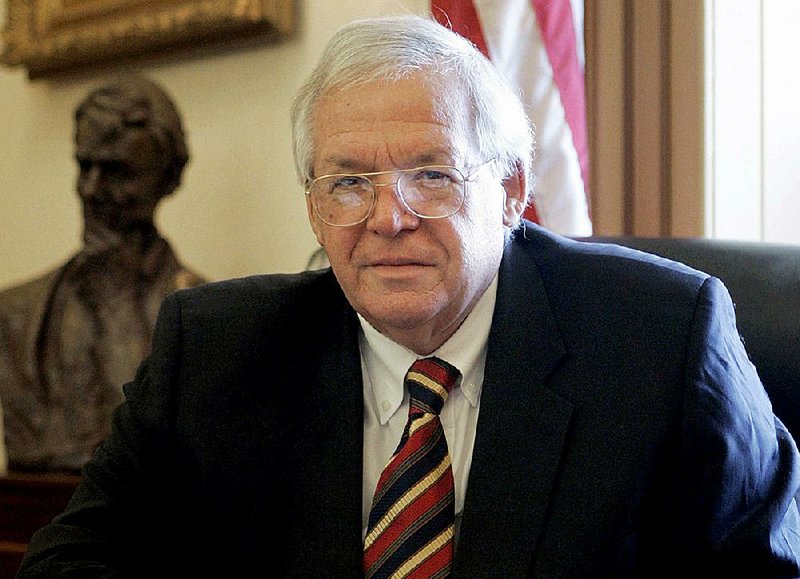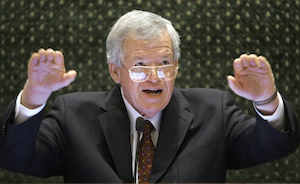CHICAGO — Dennis Hastert appeared in court Tuesday for the first time since he was indicted, pleading innocent to charges that he violated banking rules and lied to the FBI in a scheme to pay $3.5 million in hush money to conceal misconduct from his days as a high school teacher.
Defense attorney Thomas C. Green entered the pleas on behalf of the former House speaker, who looked visibly ill-at-ease during the 20-minute hearing. He stood motionless before the judge's bench, his shoulders hunched, his hands folded and his eyes cast downward to the floor.
When the judge asked on several occasions if he understood the proceedings, Hastert nodded his head and answered quietly, "Yes, sir."
The 73-year-old Republican has not spoken publicly about the accusations that emerged two weeks ago and quickly raised questions about possible sexual abuse by the man who was once second in the line of succession to the presidency.
The politician-turned-lobbyist stepped before Judge Thomas M. Durkin on charges that he broke federal banking laws by withdrawing hundreds of thousands of dollars in cash and lying about the money when questioned.
The judge set conditions for Hastert's release, instructing him to cooperate in the collection of DNA if authorized by the court and to advise officials before changing his name or phone number -- all standard requirements.
Hastert was ordered to remain in the continental U.S. Just before the hearing began, he reached into a pocket, pulled out his passport and handed it to his attorney, who surrendered it to a court official.
The former congressman was also ordered to have any firearms removed from his property by June 23 and was forbidden from having contact with victims or witnesses in the case.
The judge gave attorneys until Thursday to say if they want him to stay on the case.
Prosecutors have not said if they will ask Durkin to recuse himself. Federal Election Commission records show he donated $500 to the "Hastert for Congress" campaign in 2002 and $1,000 in 2004. Durkin was an attorney at a Chicago law firm at the time of the contributions.
The judge said he had no doubt he could be impartial.
Authorities never arrested Hastert, but the judge told him he would forfeit $4,500 if he did not show up for his next hearing.
If convicted, Hastert faces a maximum five-year prison term on each of the two counts.
Read Wednesday’s Arkansas Democrat-Gazette for full details.

